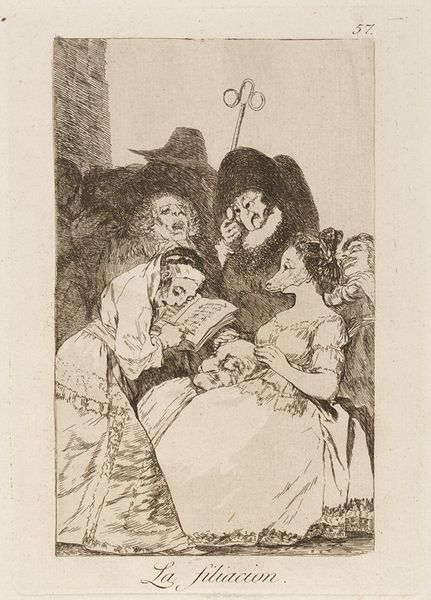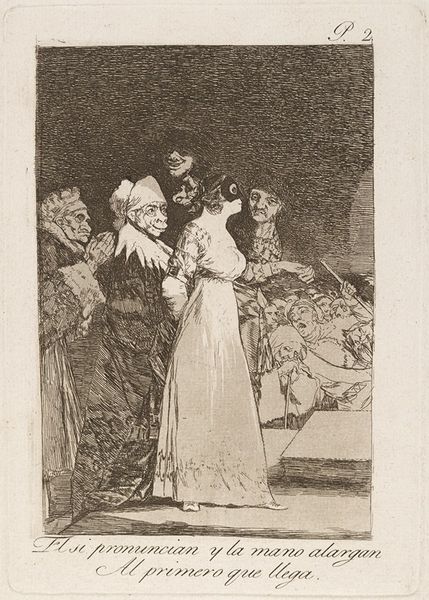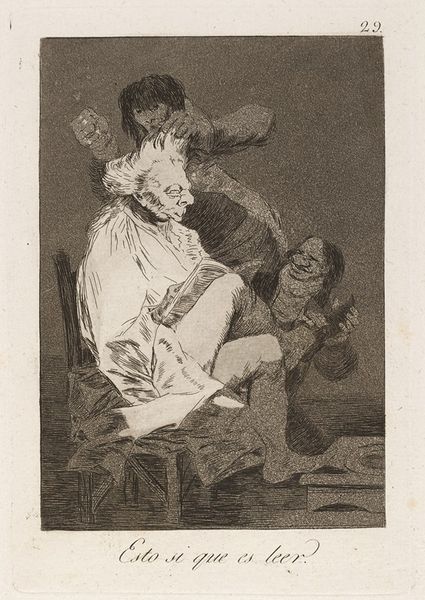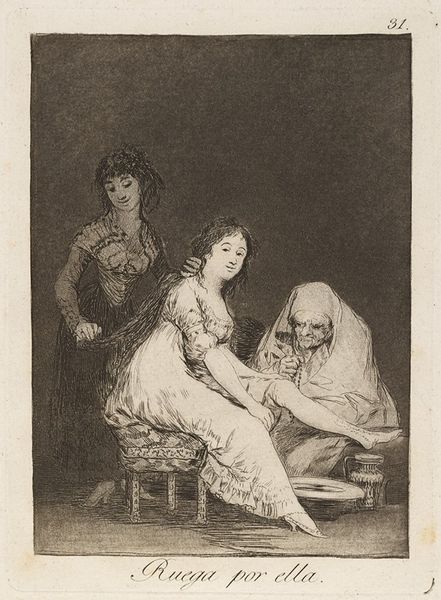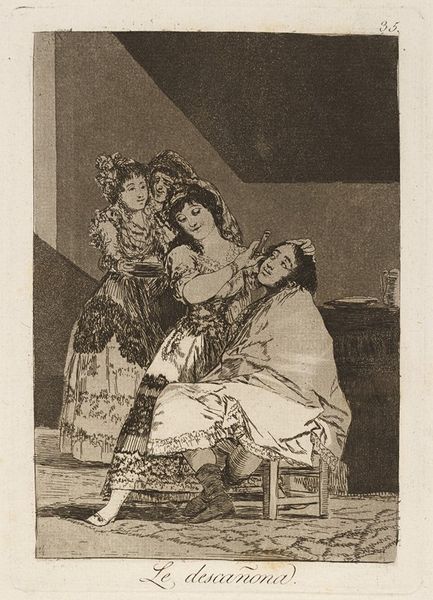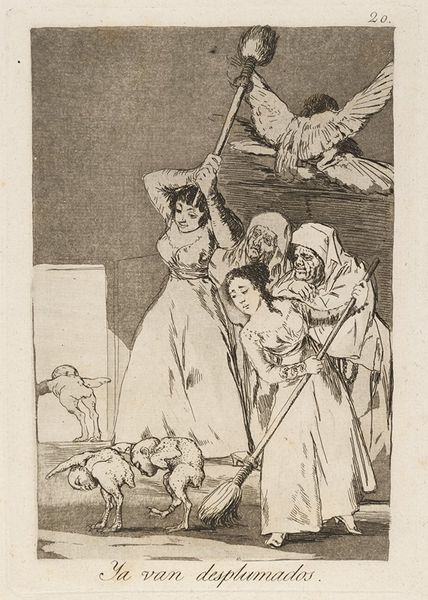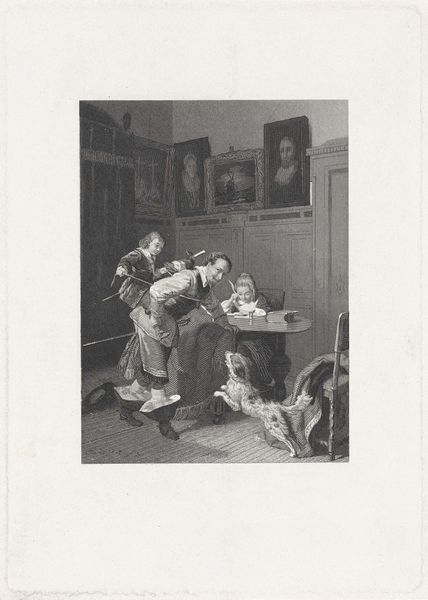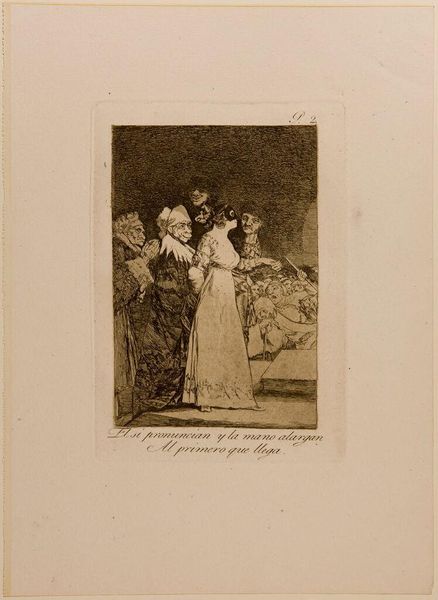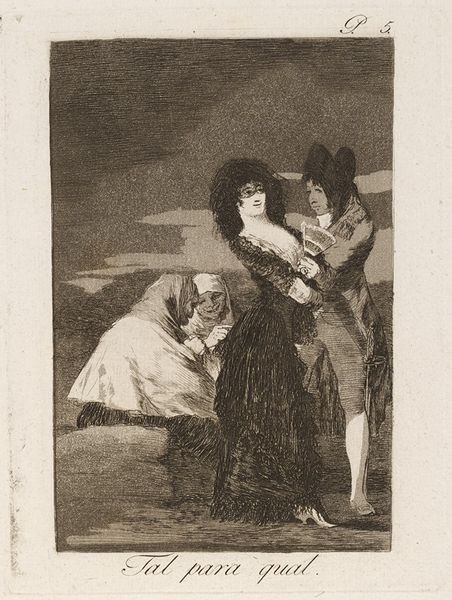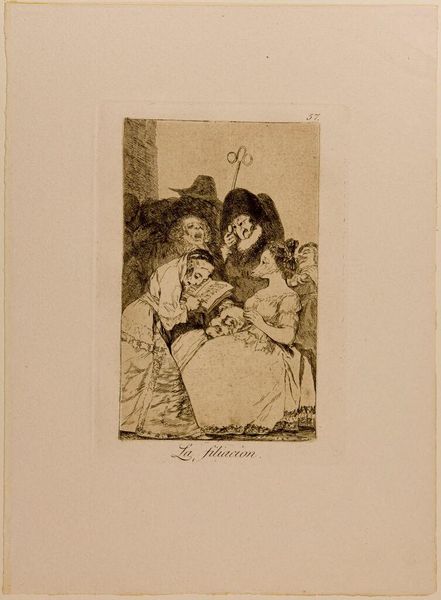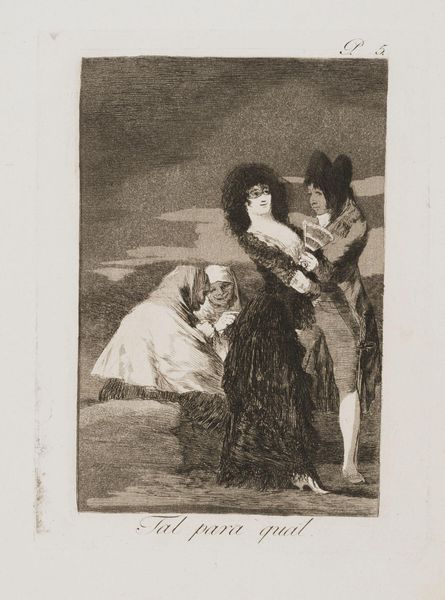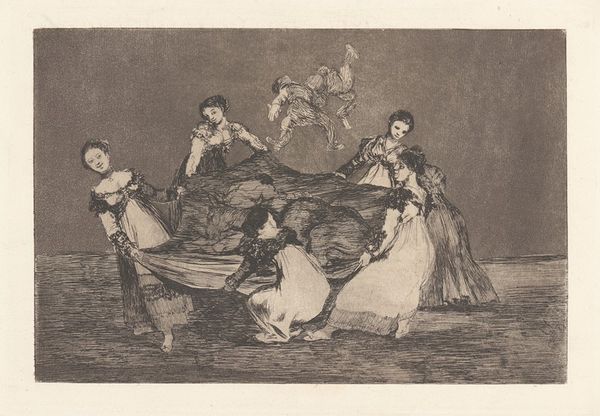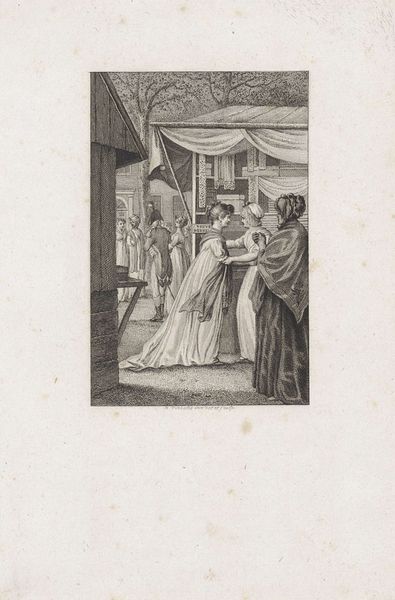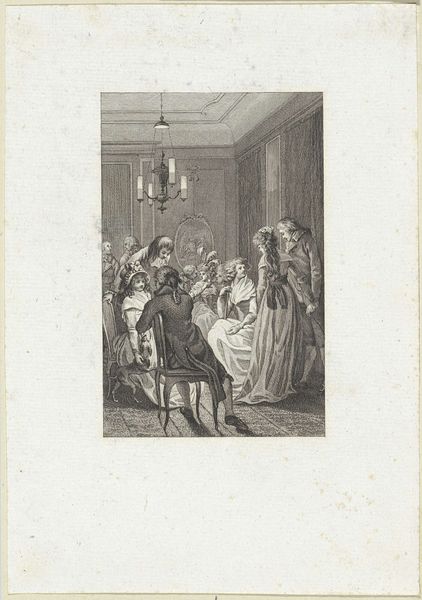
print, etching
#
pencil drawn
#
light pencil work
#
narrative-art
# print
#
etching
#
caricature
#
pencil sketch
#
old engraving style
#
figuration
#
romanticism
#
history-painting
Copyright: Public Domain: Artvee
Francisco Goya created this etching, titled "Hasta la muerte," likely sometime between 1810 and 1820. It's a stark depiction of vanity and aging, reflecting the social anxieties of Goya's time. The image presents an elderly woman, surrounded by onlookers, struggling to adorn herself with youthful finery. Made in Spain, this print likely critiques the aristocracy and their obsession with appearance amidst social and political upheaval. This was a time of revolution and counter-revolution, when the old order was visibly decaying. Goya was a court painter, so he saw all of this first hand. You can contrast it to the portraits he produced for his patrons. In this print, the institutions of art, in particular the royal court, are under intense scrutiny. To understand Goya fully, historians consult a range of sources, from aristocratic memoirs to records of the Spanish Inquisition. The meaning of his art is always contingent on the social and institutional forces that shaped it.
Comments
No comments
Be the first to comment and join the conversation on the ultimate creative platform.
